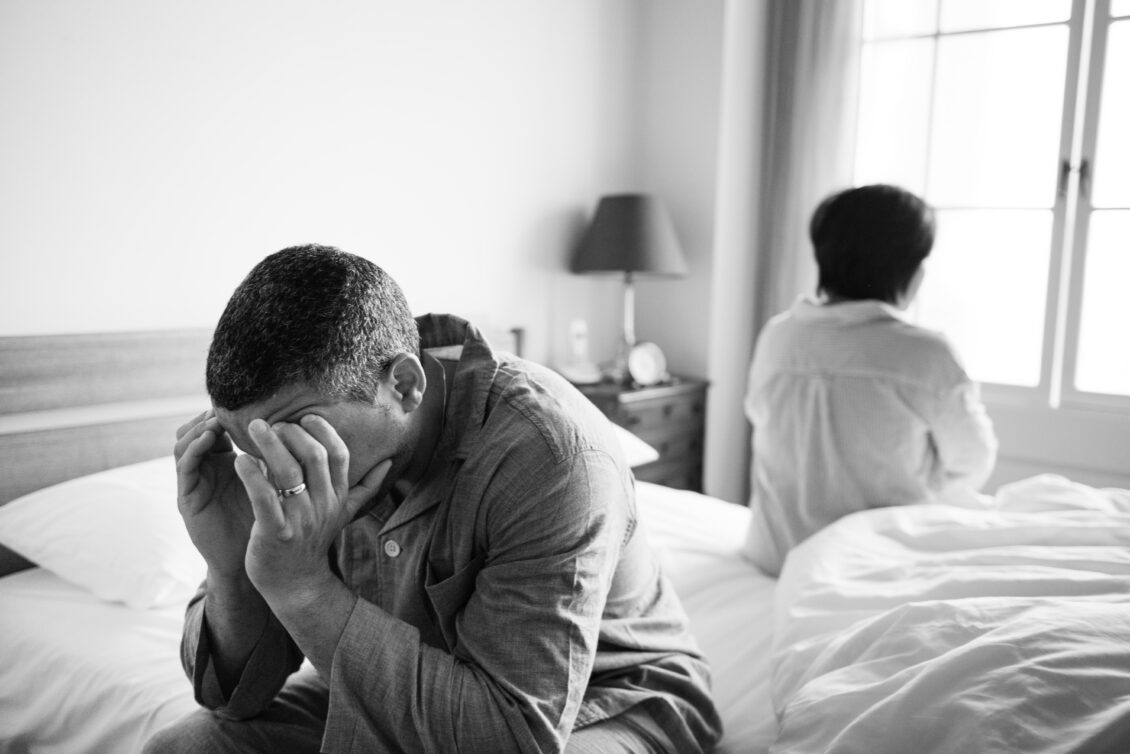
Last Updated on 10/05/2024
Did they cheat because I wasn’t enough? Why did they have to go to someone else?
Was it about sex?
Yes, an affair may involve physical intimacy, but often, that isn’t the primary reason.
Infidelity is complex. The motives behind it are often rooted in deep-seated emotions and feelings that can be difficult to understand.
Sometimes even the cheater can’t even explain to you why they did what they did.
It’s essential to recognize that, despite our best efforts in a relationship, we can still be betrayed.
The reality is that cheating isn’t solely a reflection of what we do right or wrong; sometimes, it transcends love itself.
When someone chooses to seek happiness, joy, or pleasure outside their committed relationship, the underlying issue typically lies with the “cheater.”
The truth is that it has everything to do with them and nothing to do with us.
We cannot heal those who have unresolved wounds by simply loving them harder.
Often, a void or emptiness within the individual drives them to seek fulfillment elsewhere.
Understanding this can help us navigate the painful landscape of infidelity, recognizing that the roots of betrayal often lie deep within the person who chooses to stray.
Did they fall out of love with me?
If you’re a betrayed spouse grappling with the painful question of whether your partner cheated because they fell out of love, it’s important to approach this uncertainty with compassion for yourself.
Infidelity can shake the very foundation of your relationship, leaving you questioning everything, including the depth of your partner’s feelings.
Remember that cheating often stems from complex issues that go beyond love itself.
As previously mentioned, sometimes it’s tied to personal struggles, unresolved emotions, or a search for fulfillment that has little to do with you or the love you shared.
If your partner did cheat, it doesn’t necessarily mean they no longer love you; it could indicate they were struggling to communicate their needs or feelings.
Open and honest conversations are crucial as you navigate this painful situation. Allow yourself the space to express your feelings and ask questions, but also be prepared to hear difficult truths.
Ultimately, focusing on healing—whether that means rebuilding trust together or finding closure—will empower you to move forward.
Remember, you deserve to be in a relationship where love is expressed openly and honestly, and taking the time to process your emotions is a vital part of that journey.
Should I confront the other person, and tell my family?
Deciding whether to confront the other person involved in the betrayal or to inform your family is a deeply personal choice and should be approached with care and consideration.
Confronting the other person can provide you with answers and clarity, but it may also lead to heightened emotions and conflict.
Before taking this step, think about what you hope to achieve through the confrontation.
If your primary goal is to seek closure and understanding, it might be beneficial to prepare yourself emotionally and mentally for the interaction.
However, remember that engaging with the other person can also complicate your healing process, as it may evoke more pain or resentment.
Telling your family about the betrayal can be a double-edged sword. While sharing your feelings with trusted loved ones can provide support and understanding, it also risks introducing more drama into an already painful situation.
Family members may have strong opinions, which could impact your relationship with both your partner and the family. Consider how sharing this information will affect your emotional well-being and whether your family will provide the supportive environment you need right now.
Ultimately, the decision should focus on what feels right for you. Take time to reflect on your motivations and the potential consequences of either action.
Seeking guidance from a therapist or a trusted friend may also help clarify your thoughts and feelings as you navigate this challenging situation.
Prioritize your healing and well-being as you consider the best course of action for your unique circumstances.
6 Telltale character traits in cheaters
For the most part, there is no set standard. There is no set age, gender, or race that is susceptible to cheat or be cheated on.
One person might only have cheated once in their whole life and have that be the last time, while another might be prone to chronically having affairs, and then some have never cheated in any relationship in their whole life.
Understanding who may be more prone to cheat in relationships involves recognizing a variety of psychological, social, and situational factors.
While infidelity can happen to anyone, certain patterns and traits can increase the likelihood of cheating:
- Individuals with Low Commitment: Those who struggle with commitment or have a history of short-term relationships may be more likely to cheat. They might have difficulty fully investing in one person, making them more susceptible to straying.
- People with Unmet Emotional Needs: Individuals who feel emotionally neglected or unsatisfied in their relationship may seek validation and connection elsewhere. They might turn to an affair as a way to fill the void they feel with their partner.
- Risk-Takers: Those who enjoy taking risks or thrill-seeking behavior might be more prone to cheat. For some, the excitement of an affair can be enticing, overshadowing the potential consequences.
- Individuals with Poor Impulse Control: People who struggle with self-control or have difficulty managing their impulses may be more likely to act on attraction and cheat without considering the ramifications.
- Those with Past Infidelity: Individuals who have cheated in previous relationships may be more likely to cheat again. A pattern of infidelity can create a mindset where cheating becomes normalized.
- People Experiencing Major Life Changes: Significant life transitions, such as job changes, the birth of a child, or experiencing stress, can create instability in relationships. During these times, individuals might seek comfort or escape through infidelity.
It’s important to note that while these factors can contribute to infidelity, they do not justify or excuse cheating. Each relationship is unique, and understanding the complexities behind infidelity can help individuals address underlying issues and foster healthier connections. Ultimately, open communication, trust, and commitment are key to reducing the likelihood of cheating in relationships.
4 Common myths about cheating
Myth #1
It is only considered cheating if you have sex with another person other than your committed partner.
There are different venues for cheating on a partner. Besides sex, the second most common motives for cheating on a partner is emotional intimacy.
Cheating is a subject that should be discussed before engaging in commitment with another person. To one person may be an indulgence of pornography or hanging out with a person of the opposite sex is not considered cheating but to their exclusive partner, it could all be considered cheating.
Grounds of what is cheating and what is not cheating should be discussed privately between those involved in that relationship.
Myth #2
Cheating Only Happens in Bad Relationships
Many people believe that cheating is a clear sign that a relationship is unhealthy or failing. While it’s true that some individuals cheat because they are unhappy, infidelity can occur in seemingly strong relationships as well. Factors like opportunity, temptation, and personal issues can lead someone to cheat, even if they still love their partner.
Myth #3
Partners cheat because they wanted sex with someone younger and better-looking.
Prior to contrary belief, this is not always the case. 60% of women reported that their partners were more attractive than the person they had an affair with and an astonishing 89% admitted that they received more emotional value from the affair than at home with their significant other.
Myth #4
Cheaters Don’t Love Their Partners
Another common misconception is that individuals who cheat don’t love their partners. In reality, many cheaters may still have strong feelings for their partner but find themselves caught in a moment of weakness or temptation. Love and infidelity can coexist, complicating the emotional landscape of the relationship.
Should I take them back?

Another common question that gets asked a lot is ‘’should I just take them back after they cheated on me?’’.
This choice and this right is only reserved for you and you alone.
I know people always say once a cheater always a cheater. That is the wrong viewpoint, also said by many many bitter folks that have been cheated on.
Some were in a moment of weakness and made the wrong decision, while others make it a habit to cheat.
Ultimately you want the answer lies in knowing who you are and who your partner is.
Don’t take them back unless you are ready and willing. No matter what anyone else says or reasons with you it is your own responsibility to decide because whatever happens after for good or bad you are the only one that will have to live with the choices you make.
In life, there are no guarantees. We know this because we see divorce rates increasing every day.
‘’So, if there is a chance that they will leave me or hurt me, why love then?’’
Good question. Just because we have bad experiences from time to time does it mean we should just stop living? Absolutely not!
Life can be good or bad depending on your own thoughts and actions.
When life is uncertain, the best thing you can do is to find certainty within yourself.
Learn to know who you are and what you want. Have the courage to strive for happiness and the strength to leave behind anything and everything that is not for you.
Most of all before we give all of our love to another, first learn self-love.
What about forgiveness?
Forgiveness after infidelity can be a challenging journey, especially for the person who has been betrayed.
However, it is possible to navigate this process without feeling like the betrayer themselves.
One key approach is to separate the actions from the person, recognizing that infidelity reflects a behavior rather than a judgment on your worth. Acknowledging your emotions is also crucial; allowing yourself to feel anger, sadness, and confusion helps you process the pain instead of suppressing it.
Journaling, confiding in trusted friends, or seeking therapy can provide a safe space to explore these feelings.
Setting clear boundaries is essential for fostering safety and control as you heal.
Define what forgiveness means for you and discuss your needs with your partner—whether it’s open communication, transparency, or reassurance.
Additionally, focusing on the future can help shift your perspective. Consider what changes are necessary for a secure and happy relationship moving forward, and engage in couples therapy to work through these challenges together.
Practicing self-compassion is equally important; be kind to yourself and understand that healing takes time. As you reflect on the dynamics of the relationship, recognize the roles both partners played in the situation, allowing for personal growth and understanding.
By implementing these strategies, you can work toward forgiveness and emerge from the experience with greater emotional resilience and a deeper connection to yourself.
Some last thoughts…
As we finish our discussion on infidelity, it’s important to think about how it affects relationships. Infidelity can break trust and create deep emotional pain. However, understanding why infidelity happens can help both partners deal with the situation, whether they choose to stay together or go their separate ways.
Cheating is usually not just about one person being unfaithful; it often involves deeper issues. These might include feeling emotionally neglected, personal insecurities, or past trauma. Recognizing these underlying problems can help both partners understand each other better, even when they’re hurting. It’s normal to feel angry, sad, or confused after infidelity, and these feelings are part of the healing process.
For those who have been cheated on, healing can take time. It requires patience, self-reflection, and open conversations. Rebuilding trust is hard but possible if both partners truly want to address their issues and work towards a healthier relationship. If staying together isn’t an option, it’s important to honor your feelings, allow yourself to grieve, and seek help as you move forward.
Infidelity can also lead to personal growth. It encourages both people to look at their needs and what they truly want in a relationship. Whether you decide to heal together or apart, learning from this experience can help you feel stronger and more confident in yourself.
Remember, infidelity does not define you or your relationship. It is just one part of your journey, offering chances for understanding and growth. As you move forward, hold on to the hope that healing is possible and brighter days are ahead. Focus on loving yourself, seek support from friends and family, and trust that you have the strength to navigate what comes next. Your story is not over; it is just beginning.



